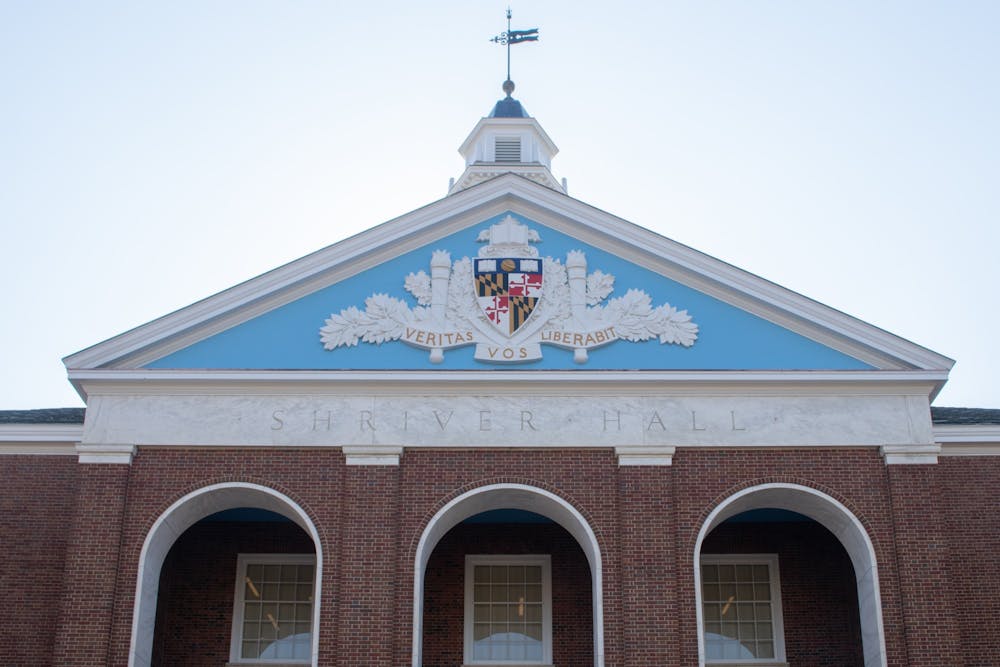The Second Commission on Undergraduate Education (CUE2) released a set of recommendations intended to revitalize the undergraduate experience at Hopkins on Wednesday. President Ronald J. Daniels and Provost Sunil Kumar convened CUE2 in April 2017 as part of the University’s “Ten by Twenty” plan.
Co-chaired by Krieger School of Arts and Sciences (KSAS) Dean Beverly Wendland and Whiting School of Engineering (WSE) Dean Ed Schlesinger, CUE2 is comprised of 30 faculty, staff, administrators, undergraduates and alumni.
The draft report recommends that the University implement several changes to the undergraduate curriculum in order to promote interdisciplinary learning and global citizenship among the student body.
“This report… seeks to establish the guiding principles and goals for a re-envisioned Johns Hopkins undergraduate education, one true to the University’s mission, faithful to its enduring character, and responsive to changing social, political and economic forces,” the authors of the report wrote.
For example, CUE2 proposed required participation in a first-year seminar, which would allow students to collaborate closely with faculty.
According to the report, CUE2 reviewed such programs at Stanford University, the University of Toronto and other institutions in order to make their evaluations.
CUE2 also suggested the establishment of a “Hopkins semester” of intensive study, in which juniors and seniors would pursue a mentored and immersive creative or research project outside their major.
In addition, the authors of the report recommended more flexible major requirements and that policies be designed to award credit for structured co-curricular and extracurricular experiences.
“We should aspire to transform the college experience from one composed solely of traditional elements — lectures, papers, problem sets, and exams — to one in which these elements sit amid a much broader range of learning activities within and beyond the classroom,” the report reads. “In short, we aim to deepen the strengths that distinguish us — to make Hopkins more fully Hopkins.”
Distribution requirements, CUE2 continued, require further scrutiny in certain departments.
“A review of these requirements, and anecdotal evidence suggest that they are not successful,” the report reads. “The means by which courses are evaluated for designation is unclear and inconsistent.”
Further, the report references the first Commission on Undergraduate Education (CUE1), which aimed to interpret the University’s mission statement for the present day.
In 2013, CUE1 recommended that Hopkins diversify the student body and provide guaranteed four-year housing.
CUE2 reflected on mental health on campus more recently, noting the recommendations of the Task Force on Student Mental Health and Well-being from Spring 2018 in comparison with peer institutions.
“According to the American College Health Association, more than 50% of American undergraduate and graduate students reported feeling anxiety in the past year; more than 30% felt so depressed at times that it was difficult to function,” the report reads. “The highly competitive academic and co-curricular atmosphere at Johns Hopkins compounds that anxiety and depression: our students report greater stress than those at other schools.”
Finally, CUE2 called for the creation of a school-wide Undergraduate Education Board which would review the implementation of the commission’s recommendations. The board would be co-chaired by the vice deans of undergraduate education from WSE and KSAS.
CUE2 invites students, faculty and staff to offer input on the recommendations during a series of town hall meetings and other listening events within the next two months. CUE2 is also hosting an online feedback form.
The authors of the report concluded by highlighting the importance of incorporating students’ voices in the future improvement of the undergraduate experience.
“Successful implementation of these recommendations would transform Johns Hopkins undergraduate education. Yet, while this report serves as the basis of such a transformation, it is not a finite set of recommendations,” they wrote. “More than ever, Hopkins undergraduates in the coming decades can be participating members, not spectators, in our collective mission.”





